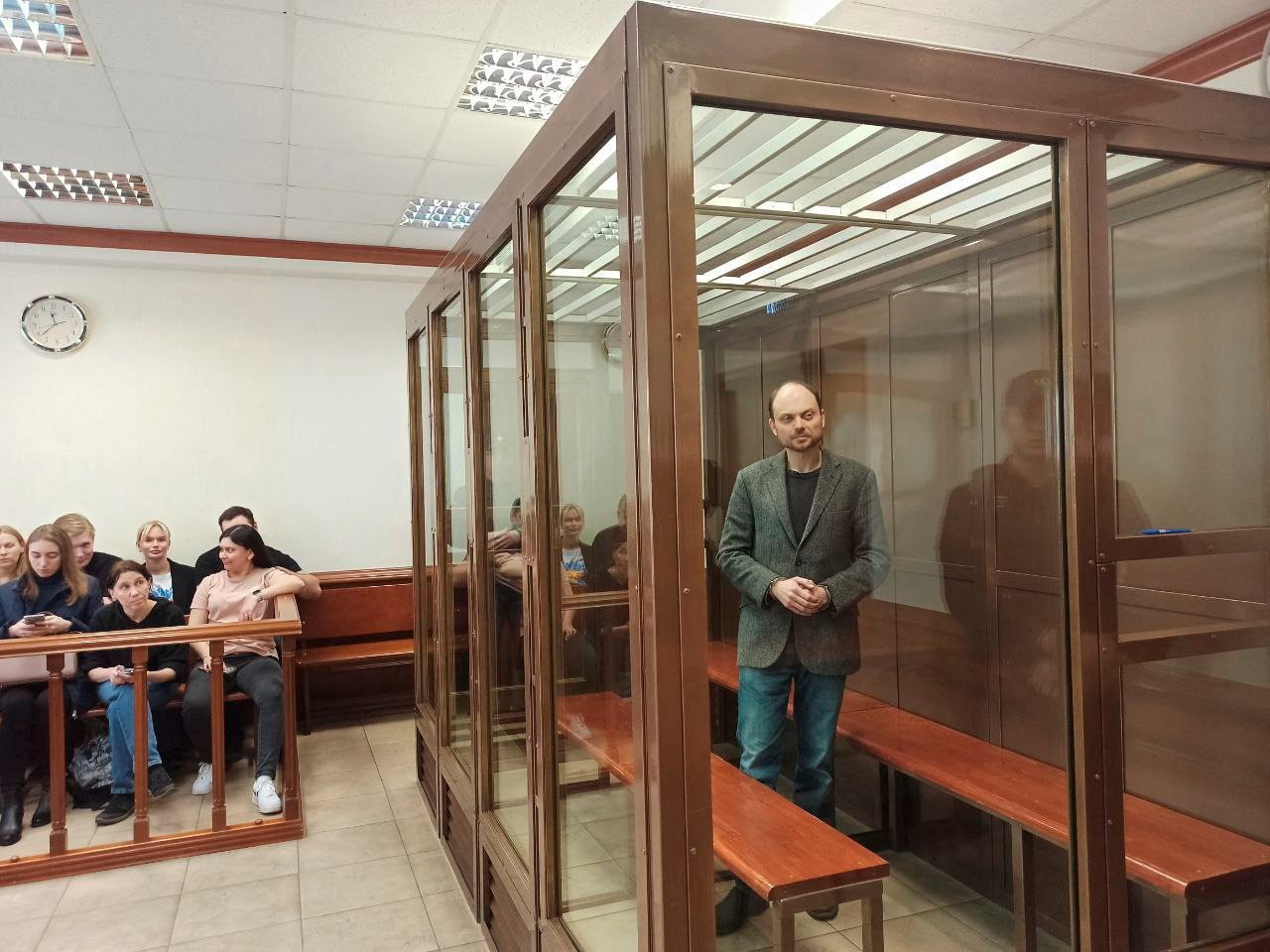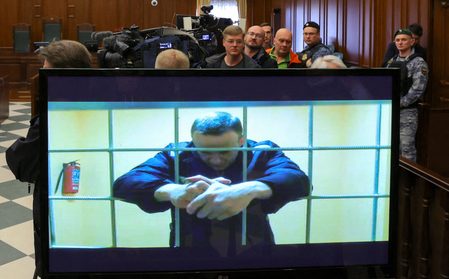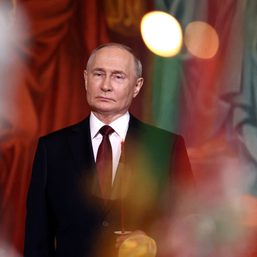SUMMARY
This is AI generated summarization, which may have errors. For context, always refer to the full article.

MOSCOW, Russia – Outspoken Kremlin critic Vladimir Kara-Murza was jailed for a quarter of a century by a Moscow court on Monday, April 17, the harshest sentence of its kind since Russia invaded Ukraine, after being found guilty of treason and other offenses he denied.
Kara-Murza, 41, a father of three and an opposition politician who holds Russian and British passports, spent years speaking out against President Vladimir Putin and lobbied Western governments to impose sanctions on Russia and individual Russians for purported human rights violations.
State prosecutors, who had requested the court jail him for 25 years, had accused him of treason and of discrediting the Russian military after he criticized what Moscow calls its “special military operation” in Ukraine.
In a CNN interview broadcast hours before he was arrested, Kara-Murza had alleged that Russia was being run by a “regime of murderers”. He had also used speeches in the United States and across Europe to accuse Russia of bombing civilian targets in Ukraine, a charge Moscow has rejected.
After hearing his sentence on Monday, Kara-Murza, who was calmly listening to proceedings inside a glass courtroom cage dressed casually in a jacket and jeans, said “Russia will be free”, a well-known opposition slogan.
In his final speech to the court last week, Kara-Murza compared his trial, which was held behind closed doors, to Josef Stalin’s show trials in the 1930s. He had declined to ask the court to acquit him, saying he stood by and was proud of everything he had said.
“Criminals are supposed to repent of what they have done. I, on the other hand, am in prison for my political views. I also know that the day will come when the darkness over our country will dissipate,” he had said.
One of his lawyers, Maria Eismont, was quoted by Russian news agencies as saying that Kara-Murza’s legal team would appeal Monday’s verdict, which she said had been marred by many serious legal violations.
Envoy summoned
In London, Britain said it had summoned the Russian ambassador to protest over what it said was a “politically motivated” conviction.
Outside the court in Moscow, British Ambassador Deborah Bronnert told reporters that Kara-Murza had been punished for bravely speaking out against Russia’s war in Ukraine and demanded he be immediately released.
US Ambassador Lynne Tracy, speaking alongside her, said Kara-Murza’s conviction was an attempt to silence dissent.
“Criminalization of criticism of government action is a sign of weakness, not strength,” said Tracy.
Shortly after sending tens of thousands of troops into Ukraine in February last year, Russia introduced sweeping wartime censorship laws which have been used to silence dissenting voices across society.
“Discrediting” the army can currently be punished by up to five years in prison, while spreading deliberately false information about it can attract a 15-year jail sentence.
Casting the conflict in Ukraine as an existential struggle with the West, Russian pro-government politicians say unity across society is vital. They have described Russian citizens who question Moscow’s actions in Ukraine as part of a pro-Western fifth column trying to undermine the military campaign.
Twice, in 2015 and 2017, Kara-Murza fell suddenly ill in what he said were poisonings by the Russian security services, on both occasions falling into a coma before eventually recovering.
Russian authorities denied involvement in those incidents. Kara-Murza’s lawyers say that as a result, he suffers from a serious nerve disorder called polyneuropathy. – Rappler.com
Add a comment
How does this make you feel?











There are no comments yet. Add your comment to start the conversation.